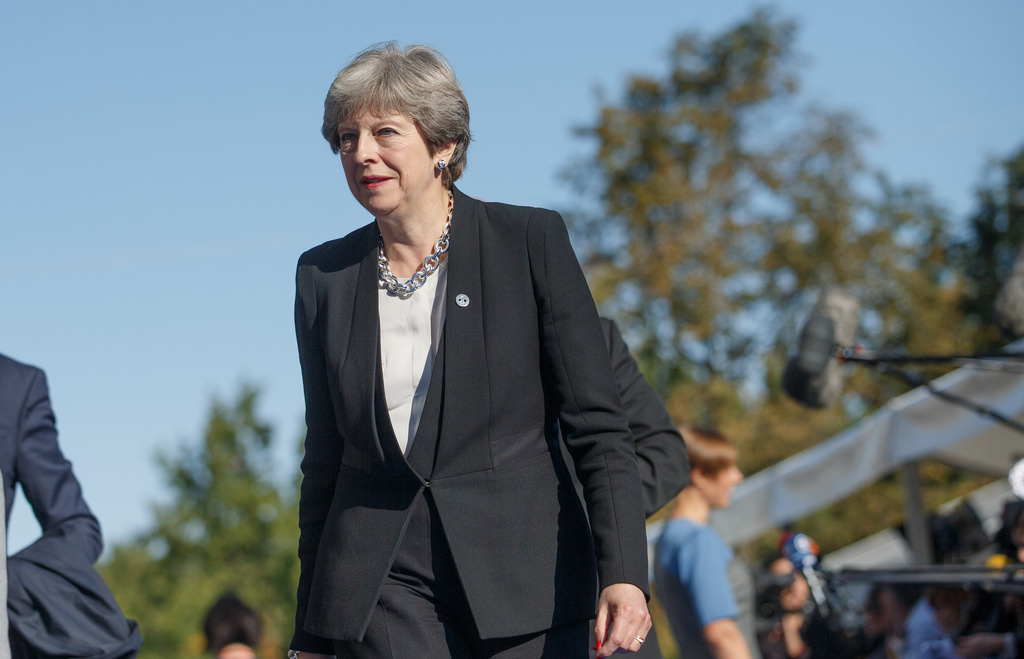The House of Commons is currently reviewing a package of laws, introduced over the last year by Theresa May’s government, which will have a major impact on the post-Brexit future of the United Kingdom. The European Union, the Taxation and the Trade bills will implement the legal framework for exiting the European Union. Trade is one of the key issues the UK is facing – as it leaves the European Union, it will lose the benefits of over 40 trade agreements which account for almost 25% of UK’s exports outside of the EU. This law will ensure the transition out of the European common commercial policy and should minimize the impact of Brexit on UK’s economy. However, the government’s project is inherently flawed and is facing resistance as it passes through the legislative process.
This law was designed to implement the government’s “copy-pasting strategy”: using the text of current EU agreements to sign new trade deals – for instance using the content of CETA to create a UK-Canada agreement. The goal of the government is to accelerate the negotiation process in order to have a maximum of trade agreements ready on the exit day. The issue? To save time this law restricts the powers of devolved governments and of the UK parliament in the decision-making process, creating a democratic deficit. Therefore, political, institutional and associative actors are committed, with reason, to change this law.
Opposition to this bill arose in the House of Commons of the UK Parliament, especially from the Labour and the Green Parties. These left-wing parties are contesting the Trade Bill because of the absence of transparency in the procedures, the limitations of the role of the parliament and devolved governments, and the lack of a framework holding the government accountable to environmental and development objectives. During the examination of the law in the Public Bill Committee several amendments were introduced by these parties in order to lead the government’s project towards a more democratic, transparent and responsible law. Given the tight majority the Conservative party holds in the House of Commons, these changes are very likely to pass.
The Scottish National Party (SNP), as a pro-European and pro-independence movement, is also strongly opposed to the government’s project. Its MPs and the Scottish government are especially against the restriction of the role of devolved governments. The current project will indeed limit the involvement of the Scottish, Welsh and Northern Irish governments in the negotiation and implementation processes. The problem is that broad agreements, such as CETA, cover topics within the competency field of these governments, such as health and government procurements. Therefore, the Trade bill should not prevent devolved institutions to participate in the negotiation process, which is why the Scottish government has entered in negotiation with the Welsh government to propose joint modifications and amendments to the Trade bill.
This contestation goes beyond the political and institutional spheres and civil society is mobilising against this bill. Organizations such as Global Justice and Trade Justice Coalition Scotland, which fought the CETA and TTIP for their lack of transparency, are strongly opposed to the Trade Bill and the possible negotiation behind closed doors of whole agreements similar to those they fought. Their campaign goes even further as they defend a more equitable, and more socially and environmentally responsible trade policy. Which this bill is far from ensuring as it institutionalizes the liberalization of public services and does not hold the government accountable to development or environmental objectives.
Conservatives are defending their project, emphasizing the urge to achieve a maximum of trade agreements before the exit date. Their defence relies on the fact that their strategy would ultimately mean transposing already agreed upon agreements, hence the small role of the parliament. However, nothing ensures that UK future trade partners will consent to implement the same agreements with the EU and the UK. Indeed, the case of a 500 million people free-trade area and of a 65 million people country are very different; and the level of concessions from trade partners may change drastically. It is therefore very likely for negotiations to reopen, in which case the parliament should be involved.
Few media outlets have been talking about this law in the past months, which is surprising since it will have such a tremendous impact on UK’s future. Indeed, soon the UK should start negotiating the EU-UK and the US-UK agreements, which will be defining for the future of the UK and have a determinant impact on its economy. These trade deals should be negotiated under sound and democratic conditions, which Theresa May’s trade bill is far from ensuring! The civil society and the opposition parties must keep up their work to change this unhealthy law.














Leave a Comment
Your email address will not be published. Required fields are marked with *